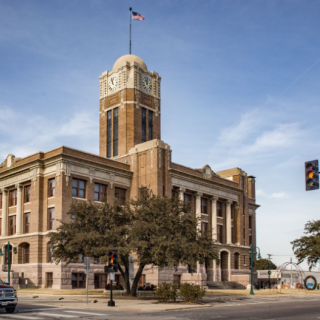I visited my mother today. Entering the long term care unit in which she spends her final days, I hear the blare of her television. As I sit down next to her hospital bed, I realize that we’re viewing live coverage of the 50th anniversary of the famed 1963 March on Washington for Jobs and Freedom. In an instant, I flash back to myself as a 10 year old girl watching the black and white evening news with her parents, transfixed by this seminal event. It's only in the present that I realize its impact.
This past January, I helped form the Ohio Rights Group to advocate for the medical, therapeutic and industrial uses of cannabis. I then co-authored the Ohio Cannabis Rights Amendment based on the inalienable rights named in the Ohio Constitution’s Bill of Rights: life, liberty, property, happiness and safety.
As echoed from the Lincoln Memorial 50 years ago, the Rev. Dr. Martin Luther King, Jr. had a dream, "deeply rooted in the American dream – one day this nation will rise up and live up to its creed."
Some might ask how cannabis, a scorned drug, fits into Dr. King's dream.
Although our country has made laudable progress toward equal rights, bigotry, like an infectious disease, has a way of spreading to other issues and manifesting itself there. Marijuana is a case in point.
Not surprisingly, bigotry has lingered in America where blacks are incarcerated in far greater numbers for marijuana than whites. Denying the inalienable right to liberty, though, no longer affects just race; it has morphed into jail time even for the sickest among us who find therapeutic relief in cannabis.
However, liberty is but one right at stake. Caught with the wrong amount in the wrong place can result in the forfeiture of assets, aka property. In 2010 alone, the federal government seized over $1.7 billion in forfeited assets. This practice has become a profitable extension of bigotry, destroying in its wake the inalienable right to property.
Life, happiness and safety? While less suffering produces happier people, the safety of the drugs marketed for this purpose has become a national health crisis. In 2009, drug induced deaths, principally from the legal opiates used to relieve pain, exceeded deaths from motor vehicle accidents for the first time since such tracking began. If Ohioans have the inalienable rights of "seeking and obtaining happiness and safety," not to mention life, shouldn't they also have the right to safe pain relief with cannabis?
In 1988, DEA Administrative Law Judge Francis Young ruled, "Marijuana in its natural form is one of the safest therapeutically active substances known to man." This safety is rooted in the endocannabinoid system built into every human being from Dr. King, to me, to the head of the DEA. This physiological system is composed of "receptors" that bind specifically with chemicals called "cannabinoids," whose only known external source is the cannabis plant. As receptors populate the nervous system, connective tissues, digestive track and other organs, the plant’s medicinal properties become self-evident - pain is reduced, spasticity eased, nausea quelled and appetite stimulated.
By virtue of our shared endocannabinoid systems, all people are indeed created equal. Why then are the inalienable rights to life, liberty, property, happiness and safety abrogated simply because of cannabis use?
If Dr. King were alive today, I posit that he would agree with me. In his famous speech, Dr. King declared, "When the architects of our Republic wrote the magnificent words of the Constitution and the Declaration of Independence, they were signing a promissory note to which America was to fall heir. This note was a promise that all ... would be guaranteed the unalienable rights of life, liberty and the pursuit of happiness."
Today, that ten-year old girl has matured into a 60-year old woman. She was listening then and is acting now to bring Dr. King's dream to reality for a slightly different demographic than the one he envisioned. Dr. King believed in freedom, and so do I, for everyone with an endocannabinoid system.
As I hug my mother and leave the long-term unit, I break this brief connection to a distant past. But reinforced by Dr. King and that historic moment is my own commitment to affect change: the passage of the Ohio Cannabis Rights Amendment. This is MY dream.
The Ohio Cannabis Rights Amendment is sponsored by the Ohio Rights Group, a non-partisan, non-profit organization that advocates for the rights of Ohioans to make medical, therapeutic and industrial use of the Cannabis plant and supports the growing number of individuals, organizations and industries facilitating those uses. The measure was certified in May for a statewide signature gathering campaign by Ohio Attorney General Mike DeWine. To volunteer, please visit https://www.ohiorights.org/volunteer. To donate, https://www.ohiorights.org/donate.



